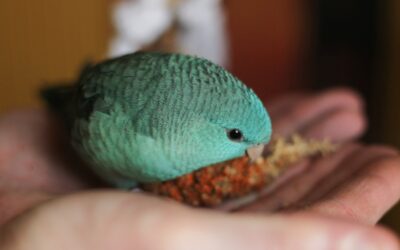Reports say that cat overpopulation is a leading cause of death of healthy pet cats in the United States. For instance, over 25,000 unwanted cats die in Louisiana animal shelters yearly due to a lack of homes and adoptions. To help prevent this epidemic from expanding even further, animal specialists recommend spaying or neutering cats at a young age.
Many cat owners often seek more information about getting their cats fixed to prevent overpopulation. This article will cover the basics of cat spaying and neutering procedures and the pros and cons of getting a beloved pet fixed.
What Is Cat Spaying Or Neutering?
Cat spaying and neutering are types of medical or surgical procedures that prevent cats from being able to produce offspring. The process removes the reproductive organs, rendering them unable to reproduce. This procedure can help reduce the number of unwanted cats in shelters and on the streets, as it reduces their ability to breed.
Cat spaying involves removing the uterus and ovaries of a female cat, while neutering involves the removal of the testicles in a male cat. These procedures are considered safe and effective for cats when done properly by skilled veterinarians.
How Old Do Kittens Have To Be To Get Fixed?
The American Society for the Prevention of Cruelty to Animals (ASPCA) recommends that you have your kitten spayed or neutered when they are between two and four months of age and two pounds in weight. This is because kittens are usually fully developed by this age and can handle surgical procedures without any serious risks.
The American Veterinary Medical Association and the American Association of Feline Practitioners also endorse the early spay/neutering of cats and kittens, as it has been proven to help reduce the population of unwanted animals. These associations recommend cat spaying and neutering at age 8-10 weeks.
Also, it is important to note that some veterinarians may recommend spaying or neutering cats at an earlier age because cats reach sexual maturity and can begin reproducing at a young age. Therefore, neutering male cats or having a female cat spayed before they reach puberty is one of the best ways to prevent unwanted pregnancy and cat overpopulation.
Health Benefits Of Spaying And Neutering Cats

Spaying and neutering your cat can have many health benefits. Some of these include:
Reducing The Risk Of Malignant Mammary Tumors
Spaying can reduce the risk of malignant mammary tumors in female cats. Most female cats are prone to this type of cancer, which can be fatal if left untreated. Spaying cats before they reach sexual maturity can reduce the risk significantly.
Reducing Mating Behaviors
Neutering male cats often reduces their propensity for engaging in physical altercations with other male cats, thus significantly lessening the likelihood of life-threatening injuries that can result from feline brawls. Also, spaying your female cat could help reduce or eliminate unwanted female cat behaviors like heat-induced howling, giving you a more peaceful home.
Reducing The Number Of Unwanted Cats
Spaying and neutering your cat helps to reduce the number of homeless cats that are born every year, which can help reduce the burden on animal shelters. As mentioned earlier, the number of unwanted cats in shelters is a major cause of death in cats.
Decreasing The Risk Of Infections And Diseases
Neutering male cats can reduce their risk of developing perianal tumors. It also reduces the risk of other infections and diseases, such as testicular cancer in male cats, pyometra (uterine infection) in females, and FIV (Feline Immunodeficiency Virus).
Reducing The Risk Of Prostate Cancer
Male cats are prone to developing prostate cancer, and neutering can help reduce their risk of developing this condition.
Reduces Cat Stress
Spaying and neutering cats can help reduce the stress that comes with mating behaviors. Unneutered male cats may become aggressive due to their hormones, while unspayed female cats may yowl or run away in an attempt to attract a mate.
Health Risks Of Spaying And Neutering Cats

Despite these benefits, some risks are associated with spaying or neutering your cat. These downsides include:
Surgical Risks
Although the procedure is generally considered safe when done by a skilled veterinarian, some potential risks are still associated with surgery, such as adverse reactions to anesthesia or infection.
Behavioral Changes
Cats may experience some behavioral changes after spaying or neutering, such as increased aggression or lethargy. Owners need to be aware of these possible changes and provide the necessary support for their cats during this period.
Complications After Surgical Procedures
Cats can sometimes experience complications after the procedure, such as insufficient pain relief. For example, a spayed female cat may gain excessive weight due to hormonal imbalance. Owners should be aware of these risks and contact their veterinarians if any issues arise.
Increased Risk Of Urinary Blockages
Neutered male cats are at a higher risk for urinary blockages due to the lack of testosterone. Owners should be aware of this risk and take steps to prevent it from happening.
Sterilizations
Spaying or neutering means that your pet will no longer be able to reproduce, so it is important to consider the ethical implications of sterilizing your cat.
Spaying and neutering cats can provide health benefits for your pet, but there are also potential risks associated with the procedure. It is important to weigh these pros and cons carefully before deciding whether or not spaying or neutering is right for your pet. Ultimately, the decision should be based on what is best for your cat’s overall health and well-being.
Frequently Asked Questions About Cat Spaying and Neutering
After weighing the pros and cons, you may still have questions about getting your feline friend fixed. Here are some common questions:
How Much Does It Cost To Spay Or Neuter A Cat?: The cost of spaying and neutering cats will vary depending on the clinic and your location. Several factors, like the cat’s age, size, or breed, can affect the cost. Generally, the cost of spaying or neutering a cat ranges from $50 to $300.
How Old Do Kittens Have To Be To Get Fixed?: Kittens should be at least 3 months of age, and ideally, they should not be younger than 5 months old before getting spayed or neutered. Younger cats are more likely to experience complications associated with the procedure.
What Are Some Other Benefits Of Spaying And Neutering Cats? In addition to reducing the risk of infections, diseases, and behavioral problems, spaying and neutering can also reduce their overall stress levels by eliminating hormonal changes that can cause aggressive behaviors. It also helps keep pet populations in check and prevents unwanted cats.
How Often Should Cats Be Spayed Or Neutered? The American Veterinary Medical Association recommends that cats be spayed or neutered once in their life, ideally before 6 months.
What Are The Potential Risks Associated With Spaying Or Neutering Cats? As mentioned above, some potential risks are associated with spaying or neutering cats. These include surgical risks, behavioral changes, complications after surgery, and an increased risk of urinary blockages.
When Is It Too Late To Get Your Kitten Fixed? It is never too late to spay or neuter a cat because this medical procedure can happen anytime in its lifecycle. If done correctly, the procedure will not have an adverse effect on the cat’s health.
Conclusion
Spaying and neutering cats is an important step in pet care. It can help reduce the risk of infections, diseases, and behavioral problems. However, owners should be aware of potential risks associated with the procedure and weigh those against the benefits. Ultimately, it is up to the owner to decide whether or not spaying or neutering their cat is right for their pet.
Also, it is important to consult your veterinarian first before making any decisions about spaying or neutering your cat. This way, you can make an informed decision that is best for your pet.
Let Kate’s K9 Pet Care Take Care of your Pets

Your pets deserve the best life possible, and at Kate’s K9 Pet Care, we are dedicated to providing premium pet services that make sure your pets get the best care.
Whether you are looking for dog walking or cat pet care, our experienced team of animal lovers will ensure your pets get the care and attention they need.
Reviews
Kate’s K9 Pet Care is a top-rated pet care service for a reason. Here are some reviews from our satisfied customers:
“Great service and highly recommended. Kate and her team are very responsive, timely, and super friendly. Our puppy is always excited to see and play with them. The app makes scheduling, payment, and communication convenient and easy,” Michael Etheridge says.
“Kate and her team are simply fantastic!!! We have worked with Kate for over three years, and our dog waits on her every day. We recommend Kate and her team without a doubt,” Rony Garcia shares.
“We have used Kate’s K9 for almost 3 years. They are professional, reliable, and trustworthy, and they treat our pup Duke like their own. I highly recommended this company, and they offer a wide range of services. The app is so easy to use for scheduling walks or services and for secure payments. We love Kate’s K9 and hope you do too.” – Officially _ Nick shares.
Click here to book an appointment today. We look forward to seeing you soon!







